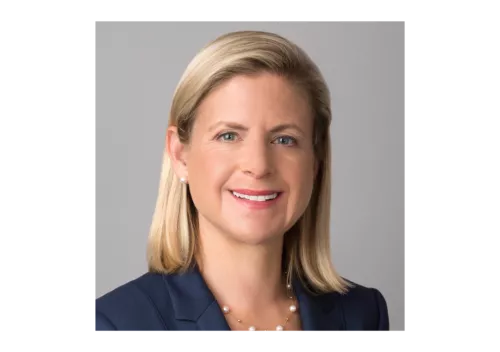Charles Elson of University of Delaware urges prospective nominees to focus on substance more than form
Charles Elson, director of the University of Delaware’s John L Weinberg Center for Corporate Governance, has combed through a lot of proxy statements, annual reports, sustainability reports, web links and other corporate material over the years. This will be his ninth year as a member of the distinguished panel of judges choosing the honorees at Corporate Secretary’s Corporate Governance Awards, to be held in New York on November 3, 2016.
In addition to his responsibilities at the University of Delaware, Elson is of counsel to the law firm Holland & Knight and vice chairman of the ABA Business Law Section’s committee on corporate governance. He has also served on numerous commissions of the National Association of Corporate Directors, including those dedicated to director compensation, CEO succession, audit committees and strategic planning, and was a member of its best practices council on coping with fraud and other illegal activity.
Based on his experience with the Corporate Governance Awards, Elson’s advice for would-be nominees is to focus on their company’s philosophy more than the accoutrements. ‘In other words, it’s the substance, not the form [that’s a priority],’ he says. ‘If an organization has good governance baked into its ethos, each of the things it does vis-a-vis governance will be the correct thing to do. I wouldn’t change your governance to win an award. I would change your governance to please your investors and, in the course of that, you’ll probably win the award.’
Elson’s own focus on corporate governance dates back to 1990, when he joined the faculty of Stetson University College of Law in St Petersburg, Florida. His entry point was scholarship and, at the time, only a handful of law professors were interested in the field. After writing a paper about executive compensation, he received advice from a renowned law professor who told him not to waste his time on director compensation issues. ‘[He said that] if I wanted a good future in law and teaching, I needed to focus on things like disclosure,’ Elson recalls. ‘A couple of years later, he writes a letter back to me saying, I was wrong.’
Elson has been researching and writing about varied aspects of governance since then, and he still has some very strong views on how companies structure their executive pay programs. For example, the biggest mistake he believes companies make is to base CEO pay packages on peer groups. ‘That assumes CEOs can jump to peer companies [but] the [truth] is they don’t,’ he explains. ‘That’s some research I did about two years ago. They rarely move laterally and, if that’s the case, why is their pay measured or created by what someone is being paid at a comparable company?’
Aligning executive pay with peer groups pushes firms to target the median compensation level or higher, driving a natural increase in pay that has no relation to performance, Elson continues. One result of the pay ratio disclosure the SEC will require of federal filings starting with those for fiscal year 2017, he hopes, is to nudge companies away from such an external focus and back to concentrating on their own internal pay philosophy.
In the early days of corporate governance’s elevated profile ‒ after Sarbanes-Oxley and a spate of other financial regulations were implemented in the wake of Enron and other corporate frauds ‒ there was a lot of low-hanging fruit for investors to push companies to fix, Elson says. In the years since, however, he thinks most large caps have cleaned up their act for the most part where governance is concerned. Today, ‘it’s really a question of performance and a debate over tactics to boost performance,’ he says. ‘So returns are going to become tougher to come by from a governance perspective.’
While traditional governance issues will continue to be emphasized at mid-cap and small-cap companies, which is where activist investors have tended to focus until recently, Elson believes governance enhancements at larger firms will become a lot more nuanced than they once were.
The major problem remaining to be fixed at large caps is dual-class stock, he says: ‘That’s why the Council of Institutional Investors came out publicly against dual-class stock at its [annual] meeting two weeks ago. It is recommending withhold votes against directors who serve on the governance committees of companies [that retain dual-class stock structures].’
Corporate Secretary is now accepting nominations for the ninth annual Corporate Governance Awards. If you would like to nominate your company or a client you work with in any of the 14 categories, please click here.








